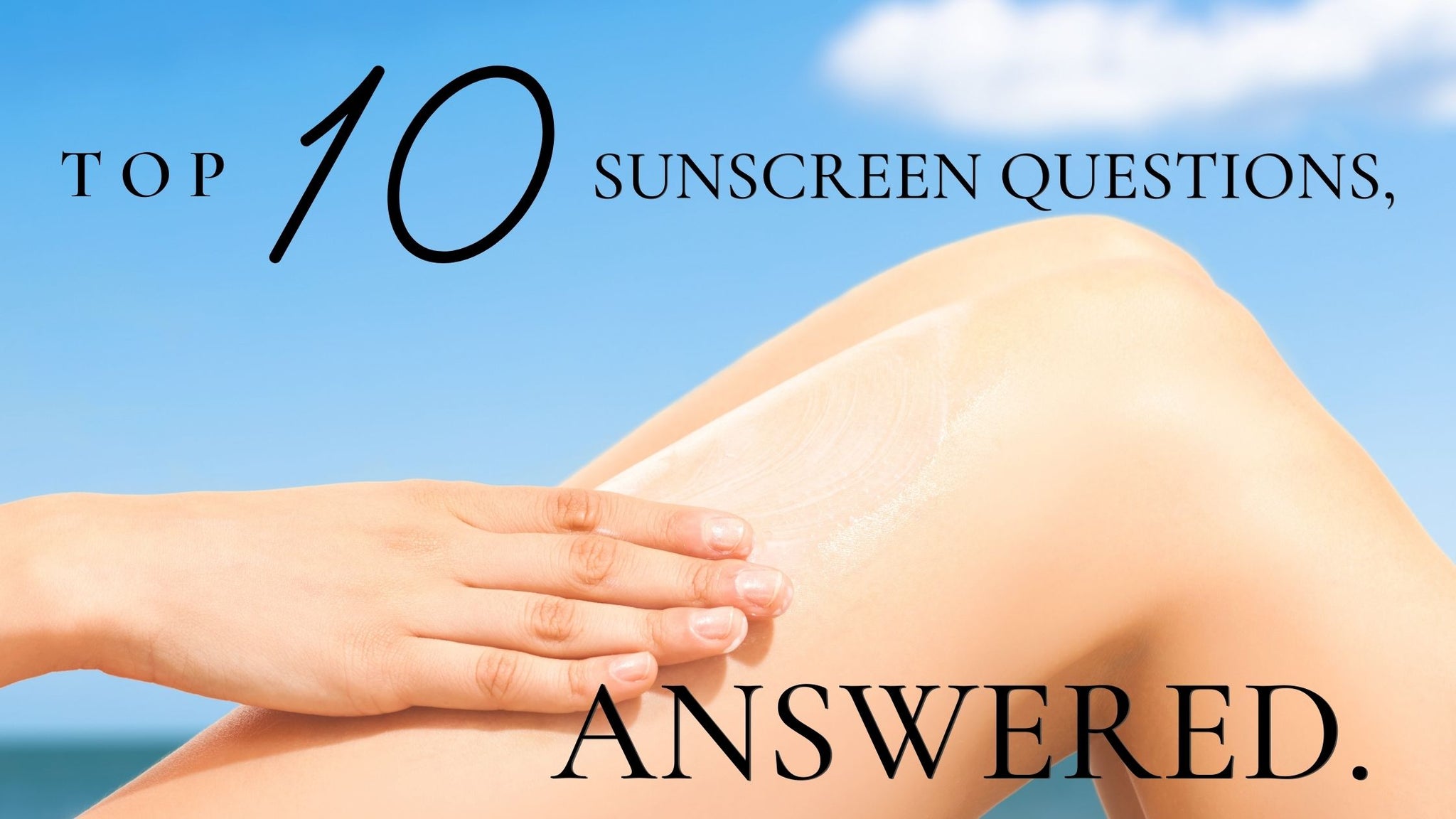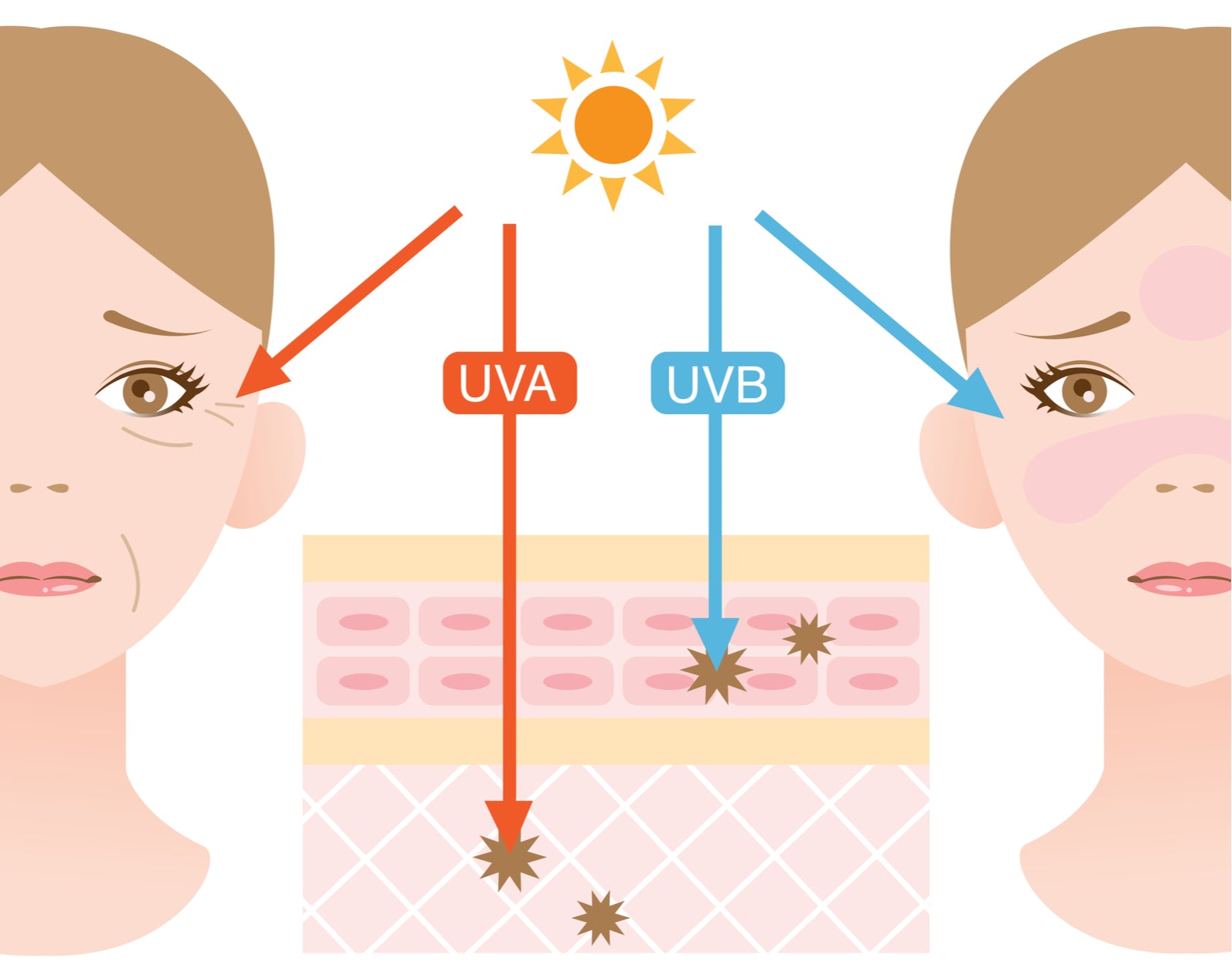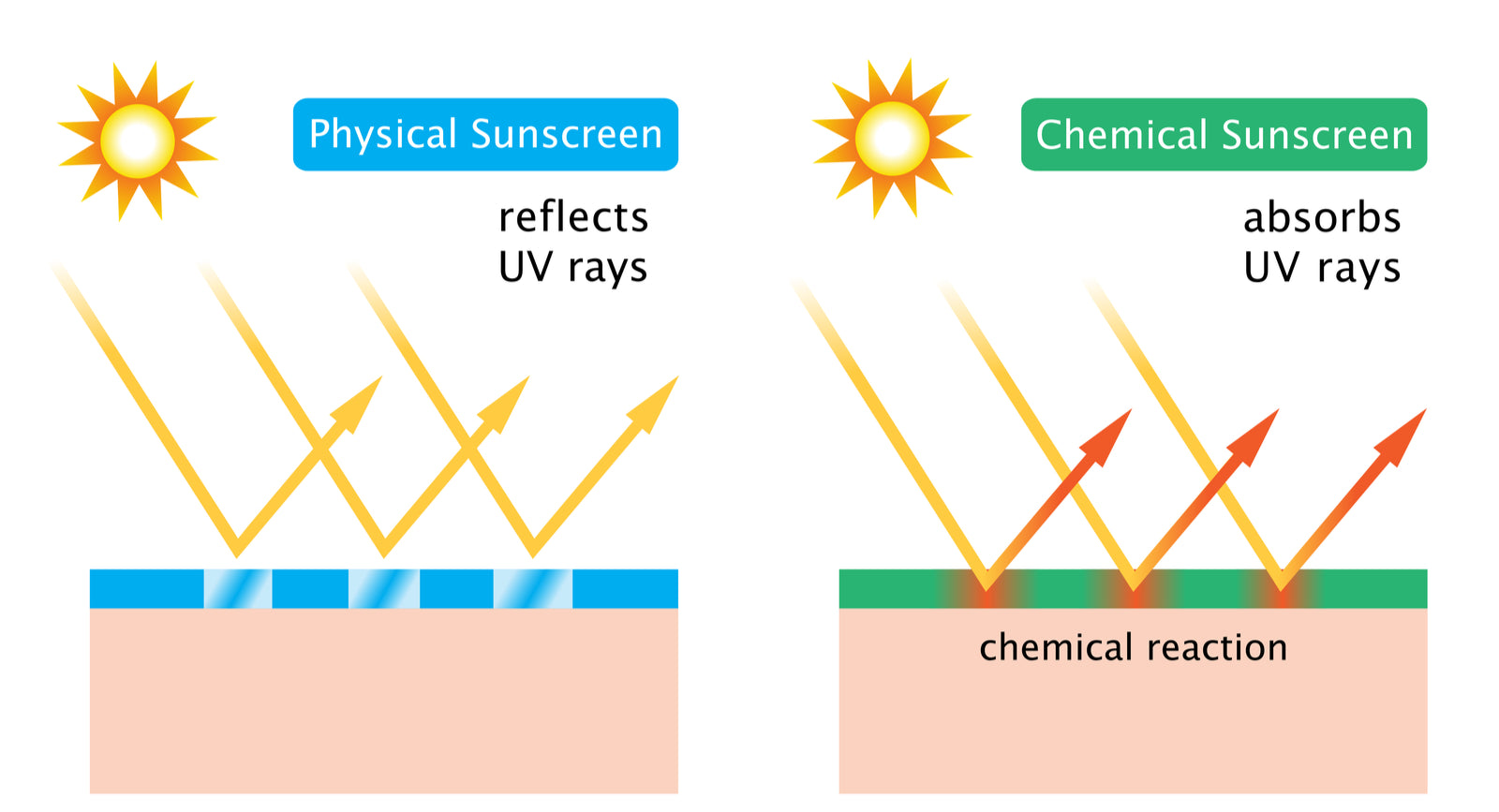September 06, 2020

In this article:
We hear time and time again about the damage the sun's rays can do to our skin. But there's so much information out there, things it can start to look a little bit cloudy. From sunscreens to sunblocks, SPF and re-application. We're shedding some light on sunscreens, and who, how and when to use it.
Our skin has a natural defence mechanism, but it's not enough to protect it against sun exposure, especially when the sun it's at its highest, typically between 10 am to 2 pm.

Sun exposure harms your skin in two major ways: UVA, which penetrates the skin more deeply than UVB, plays a big role in skin ageing, wrinkling and photo-ageing. UVB rays are the main cause of sunburns as they tend to damage the outer layers of our skin and plays a key part in the development of skin cancer and a contributory role in tanning and photoaging. Its intensity can vary by location, and time of day.
Without sun protection, our skin may suffer long-term damages such as wrinkles, premature ageing, sun spots, roughness, and pigmentation. Even more importantly, lack of sun protection could cause health complications such as allergic reactions to sunlight and skin cancer.
Sunscreens can come in many forms. Be it sprays, lotions, gels or waxes. They are usually made up of a mix of chemicals or compounds that aim to protect the skin from UV radiation.

There are two main types of sunscreens: Physical sunscreens can reflect or scatter the light away from the skin, while chemicals sunscreens work by absorbing UV rays and slowly breaking them down to release heat.
RELATED >> UVA, UVB... and Blue Light Radiation?
SPF stands for Sun Protection Factor, which is a number that signifies how long the sun's UVB rays would take to cause a sunburn compared to the same amount of time without sunscreen. Put simply, an SPF 30 sunscreen would take you 30 times longer to burn that with no sunscreen at all.
To find out more about the full Ultraviolet Index, and to see the latest UV Index forecast and breakdown for Singapore, click here.
Sunscreens with higher SPF ratings means you get more protection from UVB rays for a longer period of time.
An SPF 15 sunscreen blocks 93% of UVB rays, while an SPF 30 sunscreen blocks 97% of UVB rays and an SPF 50 sunscreen blocks 98% of UVB rays. Most dermatologists recommend using a sunscreen with SPF 15 or SPF 30.
Yes! The heat and sun damage may aggravate acne and pores even more. Sun exposure can cause dryness and dehydration, which in turn activates oil glands and sebum, leading to even more breakouts.
Sun exposure can actually darken pigmentation, so those post-inflammatory pigmentations or acne scars may turn even darker without proper suncare.
It is best for babies under 6 months to avoid sun exposure. For infants or toddlers above 6 months, parents should apply sunscreen with an SPF of 30 or higher to any exposed areas not covered by protective clothing.
Look for a sunscreen suitable for children, to avoid causing irritation to their sensitive skin.
Going without sunscreen on an overcast day can still lead to sun damage.
Even when it's cloudy, up to 80% of the sun's UV rays can pass through clouds, go through windows and damage your skin. Although direct sunlight is more harmful, that 80% still sinks into your skin, and increases the speed of your skin's ageing.
Save your sunscreen for the day time. It won't be necessary as there's no sun around to protect your skin from! Although it may not cause your skin any harm, there are other skin-repairing creams and treatments that you could be using to replenish and treat your skin instead.
It's recommended to reapply sunscreen every two hours. In reality, that may not be the case. The question of how often is enough depends on how long you spend outdoors, under the sun, how much you perspire and if you're going swimming.
Sunscreens are broken down by exposure to the sun, not necessarily by time. So, if you're spending most of your day indoors or not exposed to the sun, just remember to re-apply 10-15 minutes before you head out.
However, it's important to note that UV rays can pass through glass and windows. You may not get a sunburn, but there's still a risk of sun exposure there.
Voted Best Sunscreen Over Makeup by Her World, Bema SolarTea's Anti-Age High Protection Organic Suncream SPF 30 is packed with moisturising, anti-ageing antioxidants and perfect for throughout the day top-ups.
Sunscreens absorb and scatter UV radiation before it can penetrate the skin. Sunblock, on the other hand, sits on top of our skin and blocks the sun’s rays by reflecting them.
However, sunblock is rarely found now today. Why is that? In 2013, the FDA outlawed the use of the word “sunblock” because it felt the phrase gave consumers a false sense of security when spending time outdoors.
When looking for a sunscreen that won't irritate your skin, look out for synthetic fragrances, non-chemical (AKA physical or mineral) sunscreens, as they are far less likely to cause irritation. For eczema-prone or dry and sensitive skin, sunscreens containing moisturising or antioxidant-rich ingredients can help soothe your skin.
Protect and treat your skin with Bema SolarTea's Organic Multi-Protection Sun Cream SPF 50 which acts as a triple threat, reducing hyperpigmentation formation, protecting skin from oxidative stress UVA, UVB and blue light rays. This plant-based powerhouse will deeply hydrate, soothe and illuminate your skin while protecting it from sun damage.
Shop all Suncare
Comments will be approved before showing up.
December 14, 2021
🎄Christmas gifting 🎁 made easy with holistic gift ideas for your friends & loved ones. Share the joy of healthy self-care when you gift your loved ones👩❤️👨 with our holistic 🍃skin care sets designed to gently uplift and enhance positive well-being!
September 05, 2021
| Item | Price | Qty | Total | |
|---|---|---|---|---|
| Subtotal |
$0.00 |
|||
| Shipping | ||||
| Total | ||||